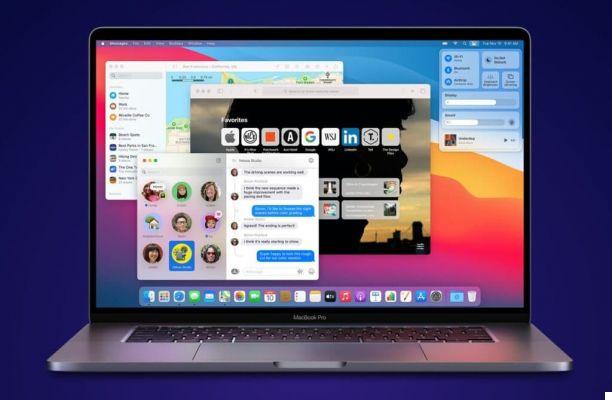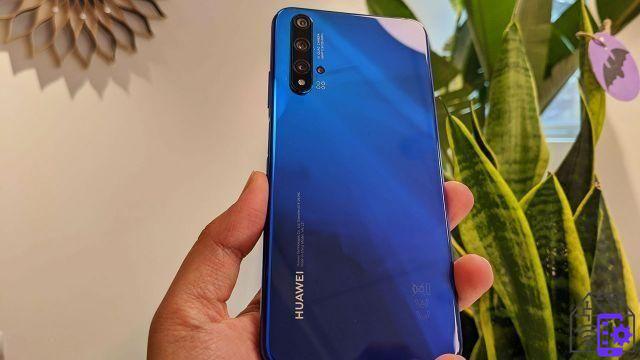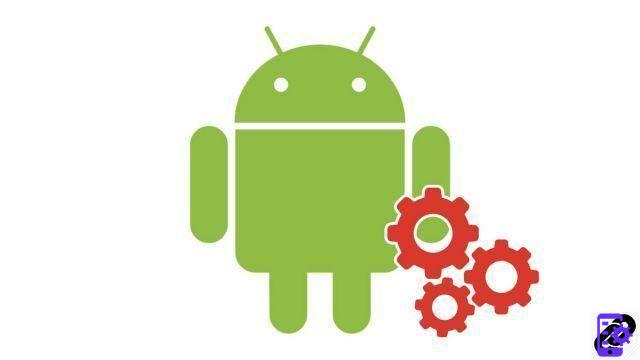Here's everything you should know






- smartphone they have changed the way we interact with the Internet. The cellular networks have evolved over the years in order to satisfy an ever increasing demand, up to the 5G, the latest version of the mobile internet.
Now that the 5G networks are entering the market, there is strong speculation about the safety of this technology. And in the UK, some have gone so far as to burn towers 5G fearing (even!) that they would propagate the Covid-19.
Obviously these are completely unfounded fears, because viruses spread in a completely different way, as he explains in detail the Higher Institute of Health.
The best smartphones ready for 5G
Let's try to shed some light on this technology, explaining whether or not it is harmful to health:
What is 5G?
In most homes, offices, shopping centers, the connection to the internet via mobile devices (cell phones, tablets, etc.) is made via Wi-Fi. Externally, however, we must rely on mobile networks (InformaticsKings Mobile and other).
In recent years, the technology to improve Internet connection speeds, its reliability and coverage has made great strides. One of the most significant advances was the spread of 4G, which allowed us to use smartphone to listen to streaming music, to make video calls and even to watch Sky and other TV while we are on the road.
Il 5G it represents the evolution of cellular networks that have to manage increasingly heavy data flows. The technology promises ultra-broadband speeds and supports the future of Internet of Things (IoT) devices.
Col 5G you can have many more simultaneous connections, at very high speed (potentially up to 10 Gigabit, 10 times the current offer in FTTH fiber), with very low latency times (to give an example: web pages will load even faster).
Il 5G differs from the current one LTE 4G as regards the frequencies used, the quantity of antennas needed and for a different data transmission technique.
5G in Italy
In our nation, operators will work with 5G around three frequencies: 700 MHz, 3,7 GHz e 26 GHz. The first two are the same on which the DTT and 4G. Therefore, the absence of any harmful effect on health has already been observed over the years.
Is 5G dangerous?
During the pandemic of Covid-19, 5G (as already mentioned) was brought up as a possible "smearer". It was none other than one of the many fake news spread on the epidemic (and not only): viruses are not transmitted with electromagnetic waves.
Some argue that 5G networks and technologies will have a major impact on health. Nonetheless, there is no scientific proof that 5G is dangerous. Also when we started talking about 4G, a few years ago there were the same concerns, then fell on deaf ears over time.
Early 5G studies indicated that the amount of radiation generated by 5G cell towers and 5G smartphones themselves are far below official safety limits.
As regards the 26 GHz we mentioned in the previous paragraph, we are actually talking about a very high frequency compared to those on which 4G operates, but the antennas (which will be more numerous throughout the territory) installed will use signals of lower power. And the possibility that these waves could cause DNA damage is virtually nil, due to the lack of sufficient energy to do so.
It is reasonable, however, to be cautious: even if there is no evidence that 5G is bad, most governments around the world are still monitoring the situation.
One complication arises from the fact that scientific studies produce different results from each other. If study A shows no negative impact, study B shows one, albeit very limited. In this case, there would not be much talk of study A (it is not very interesting to say that nothing happens) but study B would certainly receive more media coverage.
Is 5G Safe?
Ofcom (the communications regulator in Great Britain) carried out one of the first studies on 5G networks. Measurements were made in 16 locations in 10 English cities, and the results showed (source with the BBC) that the maximum radiation emitted was just that 0,039% of the official safety limits.
Scientific consensus is based on currently available data. It is clear that these could change in the future.
5G studies right now are limited to what's being presented of the technology. And there are still few compatible users and phones. As 5G spreads to the masses, there will be more opportunities for academics and a more comprehensive view of research into wireless technologies.
Based on current knowledge, however, 5G poses no risks to human health.
Wireless networks and cancer
One of the oldest claims about this new type of network is that 5G could cause cancer, so it's worth dwelling on.
Cancer is the uncontrollable growth of cells in our body. Our DNA contains instructions on how cells should behave, and also on how to control cell growth. If there is a change, or mutation, of these structures, the instructions are no longer correct and lead to abnormal growth and multiplication of cells.
Radiation can damage cells, leading to these mutations. There are multiple types and potencies of these radiations. If the radiation has enough energy it is able to interact with atoms and detach electrons. This is called "ionizing radiation" and is considered the most dangerous for humans. Despite the damage it can cause, ionizing radiation is also used in radiation therapy to treat cancer.
Low-energy, non-ionizing radiation is unable to interact with atoms and, consequently, with our cells. Wireless technologies such as Wi-Fi, radio and LTE fall into this category. Also including 5G.
In the image below you can see how 5G is positioned in the field of non-ionizing radiation, together with radios and microwaves, below visible light, ultraviolet rays (including the sun), X rays and Gamma rays. (source BBC)
Does 5G cause cancer?
The World Health Organization in 2014 stated that “… a large number of studies have been carried out over the past two decades to determine whether cell phones could cause harm to health. To date, no adverse health effects have been correlated with the use of mobile phones. "
While this type of non-ionizing radiation cannot directly cause mutations, there have been studies regarding the other effects of radiation generated by wireless radio frequencies. For example, these low-energy radiofrequency radiations can cause increases in temperature. Investigations on this effect have also shown that they have no impact on health anyway.
Is 5G the future?
While some caution is always required with new technologies, there is no evidence that 5G is more dangerous than 4G, Wi-Fi, or any other existing wireless system.
From the resulting studies to date, if anything, it has been noted, in people who make a massive use of the cell phone (hours and hours of conversation every day) a slight increase in the risk of incurring brain and acoustic nerve tumors.
The remedy, scientifically proven, to reduce this risk to practically zero too is to use a headset by moving the smartphone a few centimeters away from the head and body.
But here we are talking about responsible personal behavior, and no longer about transmission technologies.































